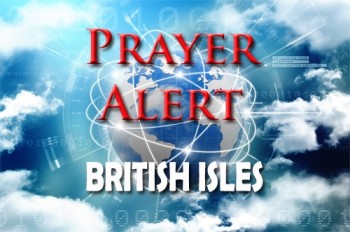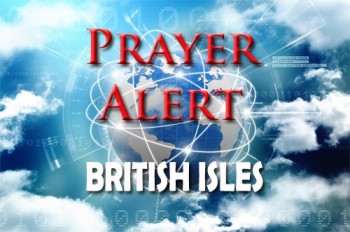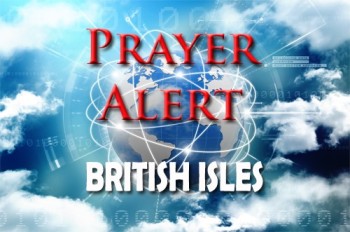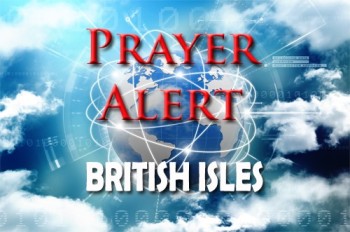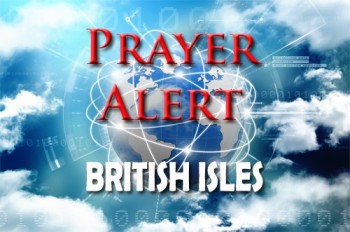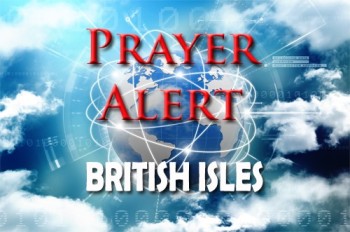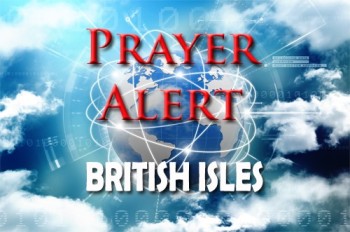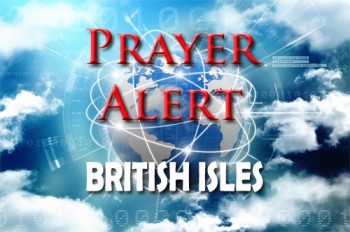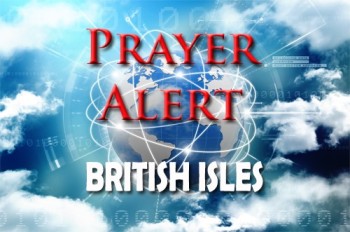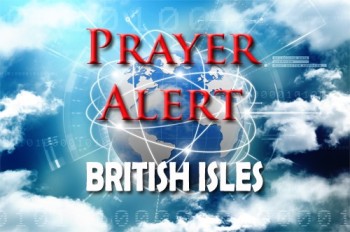Displaying items by tag: United Kingdom
Warning over 'rapid rise' in measles in parts of UK
Health officials have issued an urgent warning about a rapid rise in measles cases across parts of the UK, particularly in south west England: there have been 21 new cases in Bristol alone, making it the worst-affected city. The rise is linked to declining MMR vaccination rates, which have fallen below 90%, below the 95% threshold needed to prevent outbreaks. Nationwide, nearly 3,000 cases have been recorded since January 2024, almost half of them in London. Measles, which causes flu-like symptoms, fever, and a distinctive rash, can lead to life-threatening complications such as meningitis and sepsis. Pregnant women, infants, and immunocompromised individuals are most at risk. Doctors urge vaccination as the most effective protection, with two MMR doses providing 99% immunity. The public is advised to stay vigilant, seek medical advice for symptoms, and avoid schools, workplaces, and gatherings if infected.
Calorie labelling could make eating disorders worse, study suggests
A new study published in the British Medical Journal has warned that calorie labelling on menus may worsen eating disorders, despite policies focusing primarily on reducing obesity. Findings suggest that calorie labels can trigger harmful behaviour, including food avoidance, increased anxiety, and obsessive calorie tracking. One US study found that individuals with anorexia or bulimia selected meals with an average of 550 calories when calorie labels were visible, compared to 1,615 calories without labels. Another UK study found that 55% of participants with eating disorders reported worsening symptoms due to calorie information. Experts and charities, including Beat, are urging policymakers to consider the mental health impact of such measures. While the Government defends calorie labelling as part of its Ten-Year Health Plan, critics argue that its benefits are minimal and that eating disorder support should be prioritised over ineffective policies. See
Bishop of Liverpool resigns after sexual assault allegations
Another crisis has erupted within the Church of England, with the resignation of the Bishop of Liverpool, John Perumbalath, following allegations of sexual assault and harassment. Though no charges have been filed, he was interviewed under caution last year, and an internal investigation concluded there were no ongoing safeguarding concerns. However, critics argue the complaints (one from a female bishop) were not fully investigated. Calls for accountability have also extended to Archbishop of York Stephen Cottrell, who allegedly knew about the allegations before Perumbalath’s 2023 enthronement. Bishop Helen-Ann Hartley has strongly condemned the Church’s safeguarding failures, saying they undermine trust and damage local ministry. The scandal adds to growing pressure on Church leadership, with a petition signed by more than 37,000s demanding Cottrell’s resignation. Critics claim that there is a pattern of safeguarding failures within the Church hierarchy.
London: one in twelve may be an illegal immigrant
A confidential report commissioned by Thames Water has revealed that over 580,000 people in London - one in twelve residents - may be illegal immigrants. Researchers used national data to calculate these figures, showing that London accounts for 60% of the UK’s estimated one million illegal immigrants. Most arrived legally on work, study, or visitor visas, but overstayed. Illegal migration is straining public infrastructure, prompting crackdowns on illegal employment in industries like car washes, nail bars, and construction. Nearly a thousand enforcement visits between July and November led to 770 arrests and significant fines for employers hiring illegal workers. Critics argue that the Government has lost control of UK borders, while others emphasise the need for stricter laws to prevent abuse of asylum and human rights claims. Despite enforcement efforts, illegal Channel crossings have surged, with over a thousand migrants reaching the UK in 2025’s first 21 days. Both the Government and public debate remain divided on solutions to this growing crisis.
Business rates will more than double, ‘final blow’ to retailers
UK high street businesses face a dire challenge as business rates are set to increase by over 140% in April. The temporary 75% relief introduced during the pandemic will drop to 40%, causing substantial cost hikes for retailers, pubs, restaurants, and nightclubs; for example, the average pub’s annual rates will rise from £4,017 to £9,642. These rising costs come amid other pressures, including inflation, increased national insurance contributions, and higher minimum wages. Brick-and-mortar businesses already struggle to compete with online retailers, which pay reduced rates for warehouses. Critics warn that this 'final blow' could force many high street businesses to close. Reforms to business rates are planned but will not take effect until April 2026. Experts suggest reimagining high streets as community hubs rather than purely shopping destinations. Despite government assurances of relief measures, over 200,000 retail jobs and 17,000 stores are predicted to vanish in the coming year: see
Royal Navy warns off Russian spy ship
In November the Royal Navy's attack submarine, HMS Astute, surfaced near the Russian spy ship Yantar off the UK coast, issuing a stark warning against espionage activities targeting Britain's undersea cables. Defence secretary John Healey disclosed this rare manoeuvre, emphasising the UK's commitment to safeguarding its critical infrastructure. Yantar, officially classified by Russia as an oceanographic research vessel, is suspected of mapping undersea cables, raising concerns about potential sabotage. In response to its presence, the UK adjusted naval engagement protocols to allow warships and submarines to closely monitor such vessels. This week, Yantar re-entered UK waters, prompting the deployment of two warships and a patrol aircraft to track its movements continuously. NATO allies share apprehensions regarding Russia's activities near vital undersea infrastructure, especially following incidents like the Nordstream pipeline explosions. The alliance has deployed elite divers, submersible drones, and an array of ships to patrol and protect critical underwater assets in the Baltic Sea.
Labour civil war erupts over possible Heathrow expansion
A rift within the Labour Party has surfaced over reported plans by Rachel Reeves to approve a third runway at Heathrow and expand operations at Gatwick and Luton airports. While she emphasises economic growth as the Government’s priority, several high-profile Labour figures, including Greater Manchester mayor Andy Burnham and London mayor Sadiq Khan, have voiced strong opposition. Burnham argues that prioritising airport expansion in the South could hinder infrastructure investment in northern England and concentrate growth in London. Khan cites concerns about worsening air quality, increased noise, and the impact on London’s net-zero emissions target by 2030. Key Labour figures, including Keir Starmer and Ed Miliband, spoke against Heathrow’s expansion while they were in opposition. Reeves has countered criticism by stating that Britain’s reluctance to approve major projects has stalled economic growth. The debate highlights tensions between economic ambitions and environmental sustainability within Labour’s leadership.
Treat eating disorders as an emergency, say MPs
The parliamentary group on eating disorders has declared an emergency, citing 'woefully inadequate care' for those affected. Conditions like anorexia and bulimia have surged in recent years, with 12% of 17- to 19-year-olds and nearly 21% of young women now affected, according to a 2023 survey. The report highlights widespread barriers to treatment, underfunded services, and misconceptions about eating disorders, which affect people of all ages, genders, and ethnicities. It calls for a national strategy to support patients and families, mandatory training for frontline workers, and significant investment in care. Testimonies from sufferers reveal how delays in diagnosis and treatment caused prolonged suffering. Campaigners warn some patients are discharged too early, while families feel abandoned by the system. The NHS has pledged funding and expanded services, yet MPs like Richard Quigley argue that the system is 'beyond broken’. Immediate reforms, including earlier interventions and increased resources, are critical to saving lives and easing pressure on families.
Christians challenge school VAT policy in High Court
Christian families and schools have launched a High Court challenge against the Government’s decision to add VAT to private and independent school fees, including Christian institutions. Supported by the Christian Legal Centre (CLC), 13 claimants - including parents, pupils, and four schools - argue that the policy, enacted on 1 January, is unlawful, discriminatory, and infringes on human rights. The removal of the VAT exemption has forced schools to raise fees, threatening access to faith-based education. Stephen White, a claimant, described the sacrifices his family makes to afford Christian schooling for their children, emphasising the vital role faith-based education plays in shaping the next generation. Headteachers warn of severe repercussions, including pupil withdrawals and potential closures. Carol Santer of The King’s School in Hampshire noted that many pupils come from non-affluent backgrounds, and some rely on specialised support unavailable in state schools. Claimants are urging the Government to reconsider its decision.
NHS: patients ‘dying in corridors and going undiscovered for hours’
A Royal College of Nursing (RCN) report has revealed shocking conditions in NHS hospitals. Based on testimony from over 5,000 nursing staff, the 460-page document highlights widespread 'corridor care' which is now normal in England's hospitals. The report includes alarming accounts: patients soiling themselves due to lack of proper facilities, cardiac arrests in corridors without essential equipment, and elderly patients enduring inhumane conditions. Some patients have died unnoticed in corridors or faced fatal consequences from equipment shortages. Nurses describe the system as 'soul-destroying' and worse than the Covid crisis. The RCN chief executive called the findings 'harrowing,' emphasising the dangerous normalisation of inadequate care. While the chief nursing officer acknowledged the pressures, he stated the NHS remains committed to improving urgent and emergency care to prevent such tragedies. This report underscores the urgent need for systemic reform in healthcare services. See
